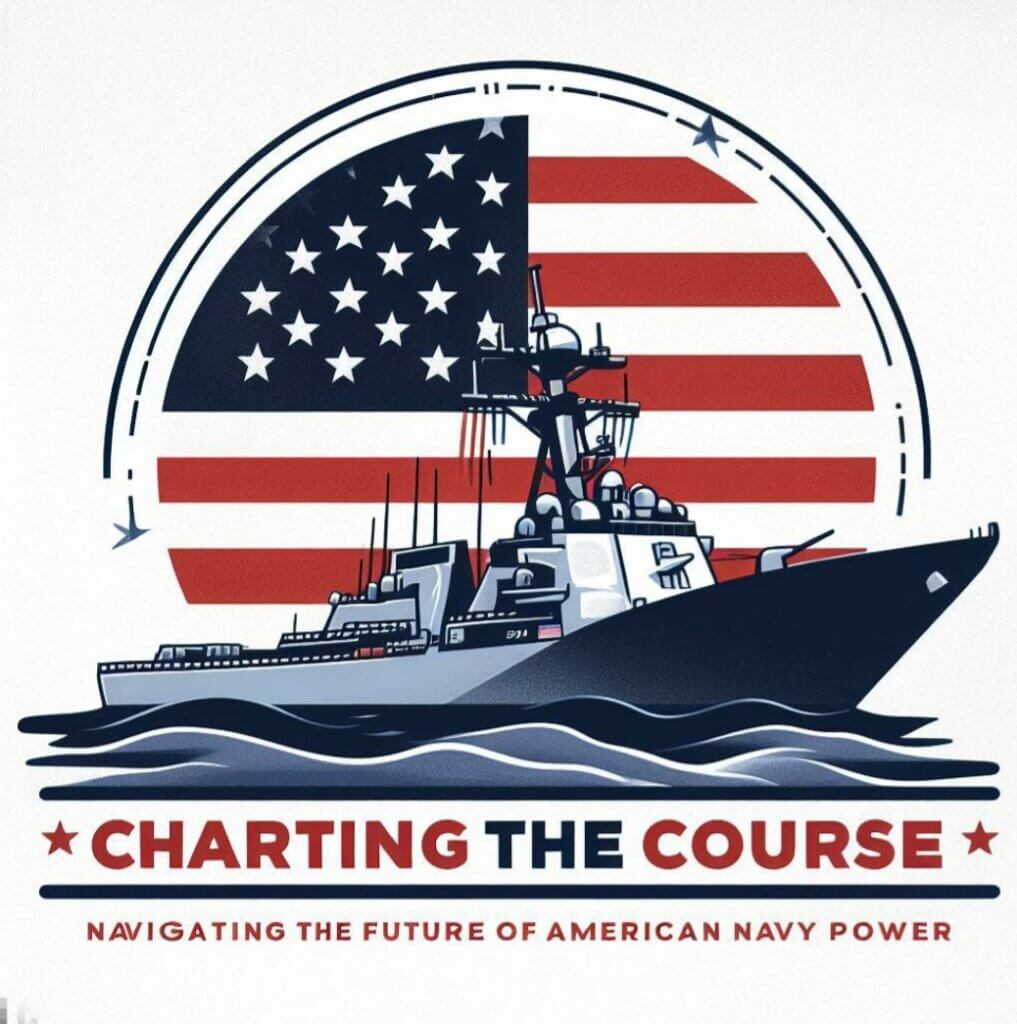
Welcome to ‘Charting the Course: Navigating the Future of American Naval Power’- Setting Sail: Foundations of U.S. Naval Strategy.
As we continue our insightful journey in this podcast series, today marks a significant milestone. In our previous episodes, co-hosts Dale and myself have set the stage, introducing the overarching themes and goals of our series.
We’ve laid the groundwork, discussing the vital role and impact of the U.S. Navy in a global context. Now, we’re excited to dive deeper into specific topics that define the future of American naval power.
We are honored to present Dr. Steven Wills, a distinguished navalist, historian, and former U.S. Naval officer, in our first in-depth episode titled ‘Developing and Implementing Effective U.S. Navy Strategies.‘
With over 30 years of experience in surface warfare, naval strategy, and national security, Dr. Wills brings unparalleled insights into the complexities and necessities of a forward-thinking Naval strategy.
Throughout our series, we’re committed to exploring various dimensions of Naval power, from strategic challenges to fleet size and composition.
Dr. Wills, an esteemed author of significant works like ‘Strategy Shelved’ and ‘Where are the Carriers?’, co-authored with former Navy Secretary John Lehman, enriches our discussion with his perspectives, shaped by his contributions to notable publications like the U.S. Naval War College Review and U.S. Naval Institute News.
Join us as we build on our past discussions, charting the evolving course of American naval power, and delve into its indispensable role in the ever-changing tapestry of global security.
Speakers and Sessions
Episode 1: Dr. Steven Wills, Navalist for the Center for Maritime Strategy at the Navy League of the United States. – The Anatomy of Naval Strate – December 28, 2023
Dive deep into the world of naval strategy with Dr Steven Wills, who brings a keen eye to the intricacies of strategy development, its challenges, and the integration of diverse naval capabilities. This session promises a thorough exploration of what constitutes U.S. Navy strategy, its objectives, and how it shapes the nation’s maritime future.
Episode 2: Dr. Bruce Jones, Senior Fellow – Foreign Policy, Center for East Asia Policy Studies, Strobe Talbott Center for Security, Strategy, and Technology, Brookings Institution. – Maritime Power Through History and Future – January 4, 2024
Join Dr. Bruce Jones for a historical and global perspective on maritime power. This session connects past and present maritime dynamics, exploring the influence of trade, climate change, and geopolitical shifts. Gain insights into how historical narratives of maritime prowess inform the current dynamics of power and influence in the global maritime domain.
Episode 3: Dr. Sam Tangredi, Leidos Chair of Future Warfare Studies and professor of national, naval, and maritime strategy at the U.S. Naval War College. January 11, 2024.
Embark on a technological journey with Dr. Sam Tangredi, an authority on the integration of AI in naval warfare. This session addresses how AI, big data, and human-machine interfaces are revolutionizing naval operations. Learn about the ethical, legal, and strategic dimensions of AI in the Navy and its profound impact on future naval force structure and capabilities.
Episode 4: Dr. Scott Savitz, Senior Engineer at the RAND Corporation – Innovation at Sea: Non-Lethal Weapons and Uncrewed Platforms – .January 18, 2024.
Explore the cutting-edge of naval innovation with Dr. Scott Savitz, focusing on non-lethal weapons and uncrewed platforms. Understand how these technologies are reshaping naval strategy and operations, their potential risks, and their role in maintaining strategic advantage over global rivals. This session promises insights into the future of naval warfare and national security.
Episode 5: Bryan Clark, senior fellow and director of the Center for Defense Concepts and Technology at Hudson Institute – The Technological Horizon of Naval Warfare – February 1st, 2024.
Delve into the future with as we examine the broad implications of emerging technologies like AI, big data, machine learning, and more in naval warfare. This session covers the integration challenges these technologies pose, their strategic impact, and their role in enhancing interoperability and effectiveness with global allies.⁰
Episode 6: Seth Cropsey, President Yorktown Institute. – Navigating Today’s Naval Challenges – February 8, 2024.
Join us as we explore the complexities of modern naval power with Seth Cropsey, a seasoned expert with extensive experience in the U.S. Naval and Department of Defense realms. This session offers an in-depth look at the current challenges and opportunities facing the Navy, particularly in the context of global rivalries. Discover the strategic insights that set the stage for a comprehensive understanding of contemporary naval dynamics.
Episode 7: Jon Rennie, co-founder, president, and CEO of Peak Demand Inc., – Leadership and Culture in Modern Naval Power –February 15th, 2024.
Conclude our series with Jon Rennie, focusing on the crucial elements of leadership, culture, and the balance between tradition and modernization within the Navy. This session highlights the importance of leadership in navigating the multifaceted challenges and opportunities in naval power, offering a holistic view of the organizational dynamics at play.
For a list of speakers and bios click here.
What to Expect:
- Delve into the Pentagon’s strategies for harnessing AI technology to counter China’s military growth.
- Gain insights into the groundbreaking “Replicator” initiative and its impact on AI system development.
- Navigate the complex landscape of budgetary challenges within the defense sector.
- Understand the pivotal role of Naval strategy in shaping global geopolitics.
- Discover the critical steps involved in preparing a future-ready Navy.
- How AI is reshaping naval warfare and unlocking new potentials.

